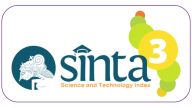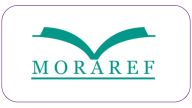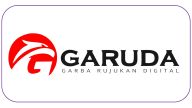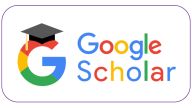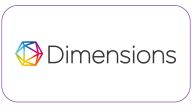Peran Academic Entitlement terhadap Academic Dishonesty Pada Mahasiswa
Abstract
Academic dishonesty adalah salah satu masalah dalam perguruan tinggi, yang dapat mempengaruhi integritas akademik individu. Tujuan dari studi ini adalah untuk menentukan peran academic entitlement terhadap academic dishonesty di mahasiswa Universitas Islam Negeri Raden Fatah Palembang. Partisipan dalam penelitian ini terdiri dari 161 mahasiswa aktif di Fakultas Psikologi di Universitas Negari Islam Raden Fatah Palembang. Instrument penelitian yang digunakan adalah skala academic entitlement dan skala academic dishonesty. Untuk mengetahui peran academic entitlement terhadap academic dishonesty dilakukan uji regresi dengan menggunakan software SPSS 22. Hasil menunjukkan bahwa academic entitlement memiliki pengaruh yang signifikan pada ketidakjujuran akademik dengan nilai R2 = 13,2% dan p<0.05). Hal ini menunjukkan bahwa mahasiswa dengan academic entitlement yang tingi lebih cenderung melakukan perilaku academic dishonesty untuk mendapatkan nilai yang lebih tinggi.
Keywords
Full Text:
PDFReferences
Akbar, A. (2018). Defining plagiarism: a literature review. Ethical Lingua: Journal of Language Teaching and Literature, 5(1), 31-38. https://doi.org/10.30605/ethicallingua.v5i1.750
Akbar, A. and Picard, M. (2019). Understanding plagiarism in indonesia from the lens of plagiarism policy: lessons for universities. International Journal for Educational Integrity, 15(1). https://doi.org/10.1007/s40979-019-0044-2
Bonaccio, S., Reeve, C. L., & Lyerly, J. (2016). Academic entitlement: Its personality and general mental ability correlates, and academic consequences. Personality and Individual Differences, 102, 211–216. https://doi.org/10.1016/j.paid.2016.07.012
Cain, J., Romanelli, F., & Smith, K. M. (2012). Academic Entitlement in Pharmacy Education. American Journal of Pharmaceutical Education, 76(10), 189. https://doi.org/10.5688/ajpe7610189
Chertok, I. R., Barnes, E. R., & Gilleland, D. (2014). Academic integrity in the online learning environment for health sciences students. Nurse Education Today, 34(10), 1324–1329. https://doi.org/10.1016/j.nedt.2013.06.002
Chowning, K., & Campbell, N. J. (2009). Development and validation of a measure of academic entitlement: Individual differences in students’ externalized responsibility and entitled expectations. Journal of Educational Psychology, 101(4), 982–997. https://doi.org/10.1037/a0016351
Delucchi, M., & Korgen, K. (2002). “We’re the Customer-We Pay the Tuition”: Student Consumerism among Undergraduate Sociology Majors. Teaching Sociology, 30(1), 100. https://doi.org/10.2307/3211524
Efendy, M. (2023). Academic dishonesty on students: what is the role of moral integrity and learning climate?. Journal of Educational Health and Community Psychology, 12(4), 879. https://doi.org/10.12928/jehcp.v12i4.27414
Elias, R. Z. (2017). Academic entitlement and its relationship with perception of cheating ethics. Journal of Education for Business, 92(4), 194–199. https://doi.org/10.1080/08832323.2017.1328383
Faucher, D., & Caves, S. (2009). Academic dishonesty: Innovative cheating techniques and the detection and prevention of them. Teaching and Learning in Nursing, 4(2), 37–41. https://doi.org/10.1016/j.teln.2008.09.003
Firdaus, W. M., & Solicha, S. (2018). The Determinants of Academic Dishonesty in College Student. Proceedings of the Universitas Indonesia International Psychology Symposium for Undergraduate Research (UIPSUR 2017). Universitas Indonesia International Psychology Symposium for Undergraduate Research (UIPSUR 2017), Depok, Indonesia. https://doi.org/10.2991/uipsur-17.2018.45
Gehring, D., & Pavela, G. (1994). Issues and perspectives on academic integrity (2nd ed.). National Association of Student Personnel Administrators.
Gump, S. E. (2006). Guess who’s (not) coming to class: Student attitudes as indicators of attendance. Educational Studies, 32(1), 39–46. https://doi.org/10.1080/03055690500415936
Knepp, K. A., & Knepp, M. M. (2022). Academic entitlement decreases engagement in and out of the classroom and increases classroom incivility attitudes. Social Psychology of Education, 25(5), 1113–1134. https://doi.org/10.1007/s11218-022-09716-4
Koss, J. (2011). Academic Dishonesty Among Adolescents [Thesis]. University of Wisconsin-Stout.
Luckett, M., Trocchia, P. J., Noel, N. M., & Marlin, D. (2017). A typology of students based on academic entitlement. Journal of Education for Business, 92(2), 96–102. https://doi.org/10.1080/08832323.2017.1281214
McCabe, D. L., Trevino, L. K., & Butterfield, K. D. (2001). Cheating in Academic Institutions: A Decade of Research. Ethics & Behavior, 11(3), 219–232. https://doi.org/10.1207/S15327019EB1103_2
Olafson, L., Schraw, G., Nadelson, L., Nadelson, S., & Kehrwald, N. (2013). Exploring the Judgment–Action Gap: College Students and Academic Dishonesty. Ethics & Behavior, 23(2), 148–162. https://doi.org/10.1080/10508422.2012.714247
Pantu, E. A., Karmiyati, D., & Winarsunu, T. (2020). Pengaruh tekanan teman sebaya dan kecemasan menghadapi ujian terhadap ketidakjujuran akademik pada mahasiswa. Jurnal Ilmiah Psikologi Terapan, 8(1), 73. https://doi.org/10.22219/jipt.v8i1.9127
Prabowo, H. (2022). Corruption and the curse of over-quantification. Journal of Financial Crime, 30(6), 1629-1652. https://doi.org/10.1108/jfc-08-2022-0179
Rahmani, K. (2018). Academic Entitlement dan Perceived Unfairness pada Mahasiswa yang Menggunakan Kurikulum KKNI. Humanitas, 2(1), 75–88.
Reinhardt, J. (2012). Conceptualizing Academic Entitlement: What are we Measuring? [Thesis]. University of Windsor.
Reysen, R. H., Degges-White, S., & Reysen, M. B. (2020). Exploring the Interrelationships Among Academic Entitlement, Academic Performance, and Satisfaction With Life in a College Student Sample. Journal of College Student Retention: Research, Theory & Practice, 22(2), 186–204. https://doi.org/10.1177/1521025117735292
Sabrina, F. N. (2021). Academic dishonesty in islamic primary schools. International Journal of Multidisciplinary Research and Analysis, 04(04). https://doi.org/10.47191/ijmra/v4-i4-09
Savilia, L., & Laily, N. (2020). Accounting Students’ Academic Fraud: Empirical Evidence from Indonesia. JABE (JOURNAL OF ACCOUNTING AND BUSINESS EDUCATION), 5(1), 54. https://doi.org/10.26675/jabe.v5i1.12569
Sessoms, J., Finney, S. J., & Kopp, J. P. (2016). Does the Measurement or Magnitude of Academic Entitlement Change Over Time? Measurement and Evaluation in Counseling and Development, 49(3), 243–257. https://doi.org/10.1177/0748175615625755
Shapiro, P. D. (2012). Entitled to Cheat: An Examination of Incoming Freshmen at a Small Regional University. Journal of Public and Professional Sociology, 4(1), 1–14.
Shipley, L. J. (2009). Academic and Professional Dishonesty: Student Views of Cheating in the Classroom and on the Job. Journalism & Mass Communication Educator, 64(1), 39–53. https://doi.org/10.1177/107769580906400104
Sohr-Preston, S., & Boswell, S. S. (2015). Predicting Academic Entitlement in Undergraduates. International Journal of Teaching and Learning in Higher Education, 27(2), 183–193.
Stiles, B. L., Wong, N. C. W., & LaBeff, E. E. (2018). College Cheating Thirty Years Later: The Role of Academic Entitlement. Deviant Behavior, 39(7), 823–834. https://doi.org/10.1080/01639625.2017.1335520
Suyadi, S., Nuryana, Z., & Asmorojati, A. W. (2021). The insertion of anti-corruption education into islamic education learning based on neuroscience. International Journal of Evaluation and Research in Education (IJERE), 10(4), 1417. https://doi.org/10.11591/ijere.v10i4.21881
Winardi, R. D., Mustikarini, A., & Anggraeni, M. A. (2017). Academic dishonesty among accounting students: some indonesian evidence. Jurnal Akuntansi Dan Keuangan Indonesia, 14(2), 142-164. https://doi.org/10.21002/jaki.2017.08
Yuni, R., Saputra, H., Agusti, I. S., & Putra, P. D. (2023). Factors Affecting Academic Dishonesty: Empirical Study on Distance Learning. In S. Setiawan, W. P. Saroinsong, M. N. Ashar, C. Boonrongrut, R. N. B. Aji, Y. Lestari, L. Mulya, G. W. Pradana, R. Riyadi, A. M. Tayeb, L. P. Hartanti, & H. R. Ayu (Eds.), Proceedings of the International Joint Conference on Arts and Humanities 2022 (IJCAH 2022) (Vol. 724, pp. 869–877). Atlantis Press SARL. https://doi.org/10.2991/978-2-38476-008-4_92
Zhao, L., Mao, H., Compton, B. J., Peng, J., Fu, G., Fang, F., Heyman, G. D., & Lee, K. (2022). Academic dishonesty and its relations to peer cheating and culture: A meta-analysis of the perceived peer cheating effect. Educational Research Review, 36, 100455. https://doi.org/10.1016/j.edurev.2022.100455
DOI: http://dx.doi.org/10.24014/pib.v5i3.25912
Refbacks
- There are currently no refbacks.
Redaksi Psikobuletin: Buletin Ilmiah Psikologi
Publisher: Universitas Islam Negeri Sultan Syarif Kasim Riau
Jl. H.R. Soebrantas Km. 15.5 No. 155 Gedung Fakultas Psikologi UIN Sultan Syarif Kasim Riau Kel. Tuahmadani Kec. Tampan Pekanbaru - Riau 28293.
E-mail : psikobuletin@uin-suska.ac.id / Website :http://ejournal.uin-suska.ac.id/index.php/Psikobuletin
Psikobuletin : Buletin Ilmiah Psikologi by Fakultas Psikologi is licensed under a Creative Commons Attribution 4.0 International License.


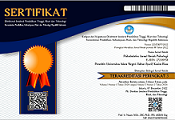
31.png)

